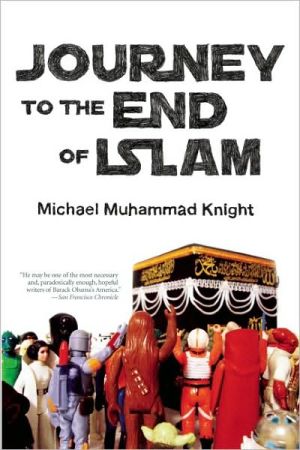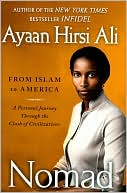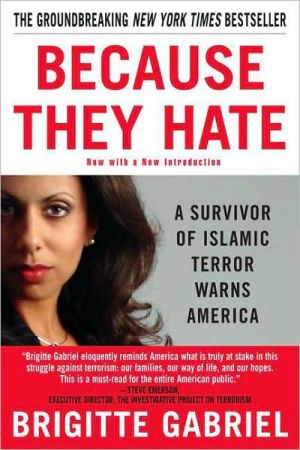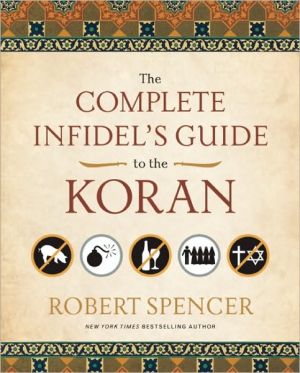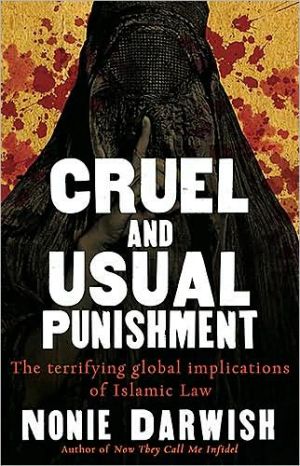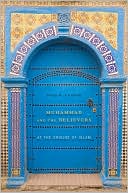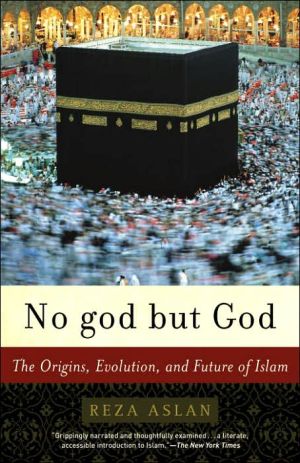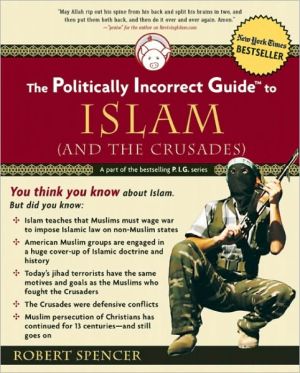Journey to the End of Islam
"In Journey to the End of Islam, Michael Muhammad Knight - whose work has led to him being hailed as both the Jack Kerouac and Hunter S. Thompson of American Islam - wanders through Muslim countries, navigating between conflicting visions of his religion. Visiting holy sites in Pakistan, Syria, Egypt, and Ethiopia, Knight engages both the puritanical Islam promoted by Saudi globalization and the heretical strands of popular folk Islam: shrines, magic, music, and drugs. The conflict of...
Search in google:
In Journey to the End of Islam, Michael Muhammad Knight — whose work has led to him being hailed as both the Jack Kerouac and Hunter S. Thompson of American Islam — wanders through Muslim countries, navigating between conflicting visions of his religion. Visiting holy sites in Pakistan, Syria, Egypt, and Ethiopia, Knight engages both the puritanical Islam promoted by Saudi globalization and the heretical strands of popular folk Islam: shrines, magic, music, and drugs. The conflict of “global” and “local” Islam speaks to Knight’s own experience approaching the Islamic world as a uniquely American Muslim with his own sources: the modern mythologies of the Nation of Islam and Five Percenters, as well as the arguments of Progressive Muslim thinkers for feminism and reform.Knight’s travels conclude at Islam’s spiritual center, the holy city of Mecca, where he performs the hajj required of every Muslim. During the rites of pilgrimage, he watches as all variations of Islam converge in one place, under the supervision of Saudi Arabia’s religious police. What results is a struggle to separate the spiritual from the political, Knight searching for a personal relationship to Islam in the context of how it's defined by the external world. Publishers Weekly Born Irish Catholic in upstate New York, Knight converted to Islam as a teenager and wrote an influential underground novel, The Taqwacores, about young Muslim-Americans struggling to integrate their religious beliefs with an affinity for beer and the Sex Pistols. His latest, a stream of consciousness chronicle of his pilgrimage to holy sites in Pakistan, Syria, Ethiopia, Egypt and Saudi Arabia, resembles nothing so much as the archetypal American road novel complete with a harrowing episode of cannabis-induced psychosis, a breezy tone (“I spent two months in Faisal Mosque in Islamabad, doing the madrassa thing and considering jihad in Chechnya”) and indifference to whether the reader can follow his references (if you aren’t acquainted with Muslim history and terminology, you would be well-advised to stay within close reach of Wikipedia). He probes and prods the boundaries of his faith with unabashed emotion and honesty, even questioning, near the end of his journey, whether he really understands anything about Islam. But the book is most engaging when he turns his gaze outward to make pithy observations on the intersection of religion and global capitalist culture (he describes Saudi Arabia as the “Wal-Mart of Islam”). (Dec.)
\ Publishers WeeklyBorn Irish Catholic in upstate New York, Knight converted to Islam as a teenager and wrote an influential underground novel, The Taqwacores, about young Muslim-Americans struggling to integrate their religious beliefs with an affinity for beer and the Sex Pistols. His latest, a stream of consciousness chronicle of his pilgrimage to holy sites in Pakistan, Syria, Ethiopia, Egypt and Saudi Arabia, resembles nothing so much as the archetypal American road novel complete with a harrowing episode of cannabis-induced psychosis, a breezy tone (“I spent two months in Faisal Mosque in Islamabad, doing the madrassa thing and considering jihad in Chechnya”) and indifference to whether the reader can follow his references (if you aren’t acquainted with Muslim history and terminology, you would be well-advised to stay within close reach of Wikipedia). He probes and prods the boundaries of his faith with unabashed emotion and honesty, even questioning, near the end of his journey, whether he really understands anything about Islam. But the book is most engaging when he turns his gaze outward to make pithy observations on the intersection of religion and global capitalist culture (he describes Saudi Arabia as the “Wal-Mart of Islam”). (Dec.)\ \ \ \ \ Kirkus ReviewsA contentious author and college speaker embarks on an international road trip to explore Islamic holy sites and modern mythologies. Knight (Osama Van Halen, 2009, etc.) is an Irish-Catholic American, but he became spellbound by Islamic culture during his turbulent teenage years and converted soon after, mostly because "it was the religion of Malcolm X, a language of resistance against unjust power." After a series of punk-rocker, Muslim-themed novels and a recent memoir, the author's religious pilgrimage launched in Pakistan, where he met up with a camera crew and a few musician friends, attended concerts and revisited the Faisal Mosque. At the age of 17, the author had found the shrine spiritually transformative, but the mystique seemed to have vanished on this particular trip. Knight then traveled by train to Pakistan's second-largest city, Lahore, which hosts countless shrines, sacred white horses, trinket vendors and various hashish manifestations, all of which he experienced and details with meticulous, didactic precision. The author took a taxi around Damascus, Syria's capital city, visiting many fascinating mausoleums, and "Bob Marley's Zion," Ethiopia, where hyena feedings were commonplace. Knight's return home to Brooklyn, and his patient fiancee, Sadaf, is less a study in culture shock than a chronicle of his attempt to produce his film footage into an epic homage, as well as a portrait of his dedication to researching Muslim religious culture. The narrative is overstuffed with Islamic history, rituals and intricate facts about his destinations-written in prose riddled with Islamic vernacular-but Knight offers plenty of levelheaded rationale, like his take on the paradox ofwhite Muslims: "It's a hard truth for American Muslims of all colors inspired by Malcolm's journey to Mecca, where he became convinced that Islam was the magical answer to racism."An occasionally scattershot but unique religious journey.\ \
